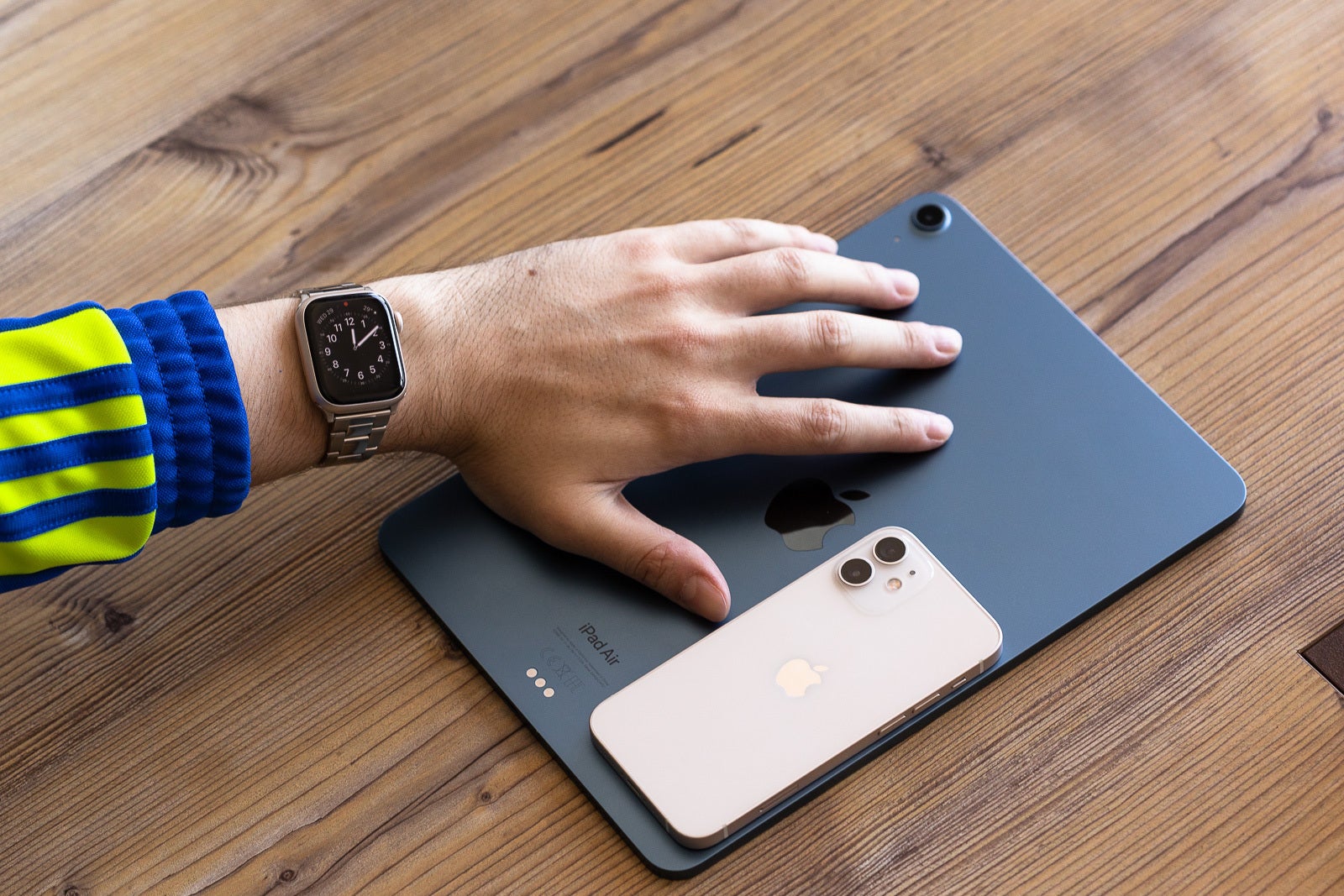Most recently I started using both Windows laptops and a MacBook, both Android phones and an iPhone, but since I keep hearing about the “Apple ecosystem” and how great it is (or at least, how great it is at keeping you locked inside), I decided to do a full dive in, and see what all the fuss is about.
So I went next-level Apple fanboy mode – using a Mac, an iPad, an iPhone, AirPods Max and an Apple Watch – decked-out in fruit-based tech now.
The whole idea of the ecosystem is that those devices, made by the same trillion-dollar company, should be working flawlessly together. Everything should be intuitive and easy for the user. But I gotta tell ya, I have gripes.
In fact, I’m about to share with you what doesn’t work as it should with the Apple ecosystem. Unexpected issues that arose while simply using all of those Apple devices together as a normal consumer, not even looking for problems to complain about.
You can’t get your iPhone notifications on Mac, while Windows has that feature

When I’m working on my laptop I’d rather not have to glance over to my phone every time I get app notifications, like an Instagram tag or a Snapchat message. Microsoft was smart to foresee that such a feature would likely be immensely useful to the right kind of person, letting them “fuse” their beloved smartphone with their PC in a way, so the company introduced Phone Link on Windows 10 and 11.It does what you’d think – your Android phone’s app notifications get sent to your PC, and you can even reply to messages and do other fun stuff right from the latter. Pretty convenient not to have to switch between devices!
How come there’s no simple and easy built-in solution on Mac to get your iPhone notifications? Surely Apple’s ecosystem should have this feature, and you’ve had it way before Microsoft, considering how the iPhone is Apple’s biggest and most important product.
Sure, the iPhone doesn’t have the bells and whistles some Android flagships have, such as folding or dual screens, but it’s reasonable to expect amazing features that link it to your Mac, right? Well… that’s a big one for me and it’s missing.
The AirPods Max microphone defaults to a low bitrate on Mac… Wait, what? Why?

Without getting too technical, this means that the microphone of Apple’s flagship $550 over-ear headphones sounds very, very bad on a Mac for some reason.
I recently wanted to compare how the AirPods Max mic sounds next to Sony’s XM5s, and my first test was recording a few videos with both, on my Mac. It’s an Apple M1 MacBook, right? So Apple’s AirPods Max should be working perfectly on it, as that’s what the ecosystem is all about.
But before I even found out about this bitrate issue, there was an even earlier problem to fix, where the Mac just wouldn’t use the headphones’ mic for recording, but would default to its own built-in mic. Even when I’m obviously connected with Bluetooth headphones, and want to use them.
Then this – the AirPods Max mic quality being terrible on a Mac. We’re supposedly getting an 8.0 kHz mono signal, even though the mic can sound way better, and it’s caused due to some codec issues. Codec issues between Apple headphones and an Apple laptop. Ecosystem!
If you wanna hear it for yourself, check out our Sony XM5 review video on YouTube, where I also compared them to the AirPods Max. Here’s a link to the microphone section of that video. Needless to say, those two’s microphones sound vastly different, despite the fact that I recorded everything on a Mac, where you’d think the Apple headphones should sound better.
Weird to think Apple didn’t look into making sure that its expensive over-ear headphones would work their best on a Mac, in times where video calls are happening more than ever, and matter a lot to so many of us.
You can’t use the Apple Watch with just an iPad; iPhone-only for some reason

I get why the Apple Watch can’t pair with an Android phone – only an iPhone. But if you happen to be an Android phone user, you might assume that if you have an iPad, which is essentially running a slightly modified iOS operating system, you should be able to pair an Apple Watch with it.
Well, it’s not an option. This seems like one of those very Apple-ish unnecessary and anti-consumer limitations to me, since it’s hard not to imagine having the Watch app on an iPad. But it’s missing, presumably because Apple really wants you to buy an iPhone, and buying an iPad is not enough to get your smartwatch paired.
I’ve seen people requesting this “feature” for years now, but it doesn’t seem like it’s coming even in iPadOS 16 this fall. Your iPad will continue being incompatible to sync with your Apple Watch for seemingly no reason whatsoever. Again, this seems like one of those ecosystem things that should… You know, work.
Again, the iPad and iPhone essentially share an operating system and can run the same apps. This does not look like an ecosystem limitation that makes sense for any other reason than “You have to buy an iPhone, because… Buy an iPhone.”
But here’s why people love the Apple ecosystem anyway

Limitless meme potential, I know…
It might seem like it’s all bad, but it’s really not, those are just some bothersome things about the Apple ecosystem I happened to stumble upon and bothered me.
You’re supposed to use your Apple things the way Apple intended, not the way you want to – which is where my issues come from – but if you do, things do work pretty well indeed.
I think my favorite thing about the Apple ecosystem is how quick and easy transferring files between devices is. AirDrop is the name Apple’s given this wireless file transfer system, and moving both file and images between my iPhone, iPad and Mac is a breeze.
In contrast, using Bluetooth to transfer Android files to Windows is an absolute nightmare that works when it feels like it, slowly, and if you’re hoping that the new Windows 11 fixed any of that – it didn’t.
In addition – the reminders app. Apple’s ecosystem brings your iPhone reminders to all of your devices, so you’ll never miss an important event or your next scheduled home workout. Again, in contrast, since Microsoft most likely didn’t make your smartphone, your phone reminders don’t show up on your Windows laptop.
I guess people really love the Messages app too, but I never use it, since most of my communications happen within other social apps, but I can see the value in a built-in, powerful Apple ecosystem messaging app.
Lastly I’d like to mention iCloud, which I’m actually not thrilled about. It’s not bad, it’s just nothing special, since there are many other cloud services with free options out there too, that work just as well. My favorite being Microsoft OneDrive, which I’ve used ever since the company bribed me with a free account a whole decade ago, when I bought a Nokia Lumia. I still use that account! And OneDrive, like many other cloud services, works everywhere – iPhone, Android, Windows, Mac… So yeah.
In conclusion, the Apple ecosystem is pretty cool, but can range between unimpressive and downright frustrating on occasion, at least if you deviate slightly from how Apple expects you to use it.
But is investing thousands of dollars to get into it worth it? Did I get some profound, amazing, next-level features by using all Apple products together? That would be no for me, dog.
Tell us about your experience with the Apple ecosystem, and your thoughts on it! Are you in it right now? Do you see value in it that I don’t? Or do you have your own issues with it that you’d like to share?




